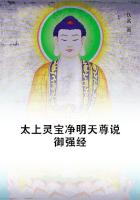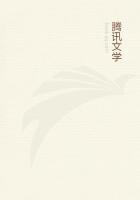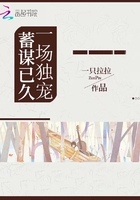Ellis was the president of the London Philological Society. Also, he was the translator of the famous book on "The Sensations of Tone,"written by Helmholtz, who, in the period from 1871 to 1894 made Berlin the world-centre for the study of the physical sciences. So it happened that when Bell ran to Ellis as a young enthusiast and told his experiments, Ellis informed him that Helmholtz had done the same things several years before and done them more completely. He brought Bell to his house and showed him what Helmholtz had done--how he had kept tuning-forks in vibration by the power of electro-magnets, and blended the tones of several tuning-forks together to produce the complex quality of the human voice.
Now, Helmholtz had not been trying to invent a telephone, nor any sort of message-carrier.
His aim was to point out the physical basis of music, and nothing more. But this fact that an electro-magnet would set a tuning-fork humming was new to Bell and very attractive. It appealed at once to him as a student of speech.
If a tuning-fork could be made to sing by a magnet or an electrified wire, why would it not be possible to make a musical telegraph--a telegraph with a piano key-board, so that many messages could be sent at once over a single wire?
Unknown to Bell, there were several dozen inven-tors then at work upon this problem, which proved in the end to be very elusive. But it gave him at least a starting-point, and he forthwith commenced his quest of the telephone.
As he was then in England, his first step was naturally to visit Sir Charles Wheatstone, the best known English expert on telegraphy.
Sir Charles had earned his title by many inventions.
He was a ******-natured scientist, and treated Bell with the utmost kindness. He showed him an ingenious talking-machine that had been made by Baron de Kempelin. At this time Bell was twenty-two and unknown; Wheatstone was sixty-seven and famous. And the personality of the veteran scientist made so vivid a picture upon the mind of the impressionable young Bell that the grand passion of science became henceforth the master-motif of his life.
From this summit of glorious ambition he was thrown, several months later, into the depths of grief and despondency. The White Plague had come to the home in Edinburgh and taken away his two brothers. More, it had put its mark upon the young inventor himself. Nothing but a change of climate, said his doctor, would put him out of danger. And so, to save his life, he and his father and mother set sail from Glasgow and came to the small Canadian town of Brantford, where for a year he fought down his tendency to consumption, and satisfied his nervous energy by teaching "Visible Speech" to a tribe of Mohawk Indians.
By this time it had become evident, both to his parents and to his friends, that young Graham was destined to become some sort of a creative genius. He was tall and supple, with a pale complexion, large nose, full lips, jet-black eyes, and jet-black hair, brushed high and usually rumpled into a curly tangle. In temperament he was a true scientific Bohemian, with the ideals of a savant and the disposition of an artist. He was wholly a man of enthusiasms, more devoted to ideas than to people; and less likely to master his own thoughts than to be mastered by them.
He had no shrewdness, in any commercial sense, and very little knowledge of the small practical details of ordinary living. He was always intense, always absorbed. When he applied his mind to a problem, it became at once an enthralling arena, in which there went whirling a chariot-race of ideas and inventive fancies.
He had been fascinated from boyhood by his father's system of "Visible Speech." He knew it so well that he once astonished a professor of Oriental languages by repeating correctly a sentence of Sanscrit that had been written in "Visible Speech" characters. While he was living in London his most absorbing enthusiasm was the instruction of a class of deaf-mutes, who could be trained to talk, he believed, by means of the "Visible Speech" alphabet. He was so deeply impressed by the progress made by these pupils, and by the pathos of their dumbness, that when he arrived in Canada he was in doubt as to which of these two tasks was the more important--the teaching of deaf-mutes or the invention of a musical telegraph.
At this point, and before Bell had begun to experiment with his telegraph, the scene of the story shifts from Canada to Massachusetts. It appears that his father, while lecturing in Boston, had mentioned Graham's exploits with a class of deaf-mutes; and soon afterward the Boston Board of Education wrote to Graham, offering him five hundred dollars if he would come to Boston and introduce his system of teaching in a school for deaf-mutes that had been opened recently.
The young man joyfully agreed, and on the first of April, 1871, crossed the line and became for the remainder of his life an American.
For the next two years his telegraphic work was laid aside, if not forgotten. His success as a teacher of deaf-mutes was sudden and overwhelming.
It was the educational sensation of 1871. It won him a professorship in Boston University; and brought so many pupils around him that he ventured to open an ambitious "School of Vocal Physiology," which became at once a profitable enterprise. For a time there seemed to be little hope of his escaping from the burden of this success and becoming an inventor, when, by a most happy coincidence, two of his pupils brought to him exactly the sort of stimulation and practical help that he needed and had not up to this time received.
One of these pupils was a little deaf-mute tot, five years of age, named Georgie Sanders.














